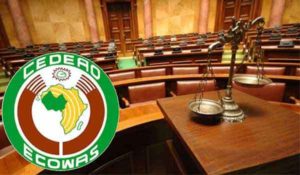 News
News
Reduction Of Judges Impedes Our Effectiveness – ECOWAS Court
The ECOWAS Community Court of Justice has decried the reduction of the number of judges attached to the court from seven to five.
The President of the court, Justice Edward Amoaka Asante made this disclosure on Wednesday at the 10th Judicial Retreat of the court at Goshen City in Nasarawa State.
He said the reduction, alongside the delay in the translation of court processes into the working languages of the court, impede the effectiveness of the court. The sub-regional body with 15-member states, has English, French and Portuguese as official languages.
“This is particularly poignant with the increased number of cases on the court’s docket, currently at 107 pending cases, a number that is expected to increase based on the trend,” he said.
Continuing, Asante said the court decided 318 cases comprising 190 judgments, 105 rulings, 18 revision judgments and five advisory opinions between April 2004 and October 2018.
Also speaking, the Chief Registrar of the court, Tony Anene-Maidoh explained that the objective of the four-days retreat was to introduce the new members and judges and executive assistants to the jurisprudence of the court as developed by former members between 2003 and 2018.
The new judges of the court are: the president, Edward Amoako Asante (Ghana); vice president, Gberi-Be Ouattara (Cote d’Ivoire); members- Dupe Atoki (Nigeria); Keikura Bangura (Sierra Leone) and Silva Moreira Costa (Cape Verde).
